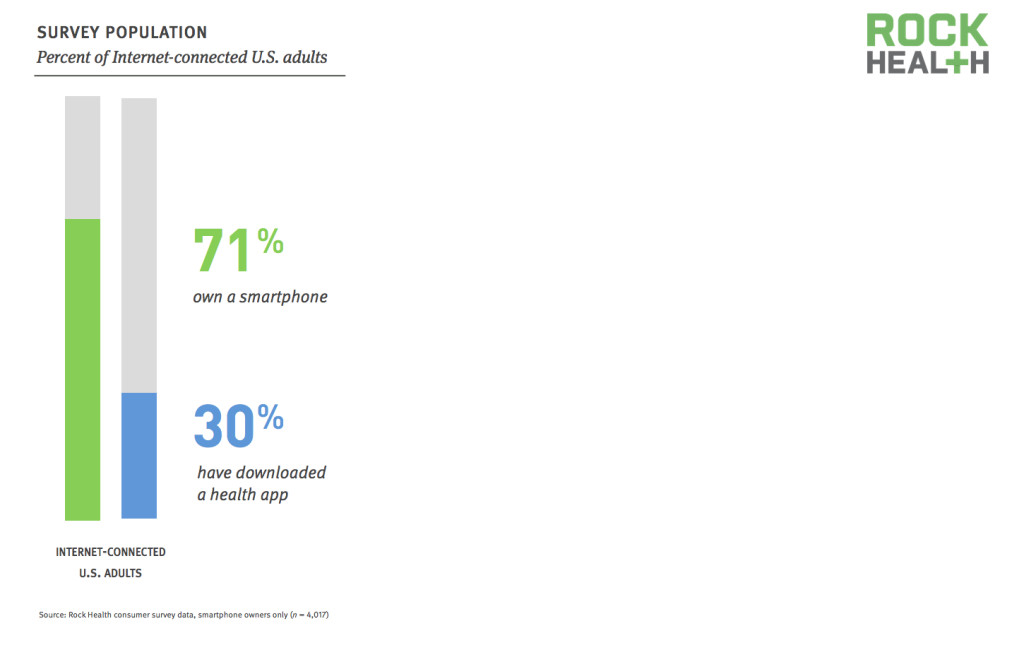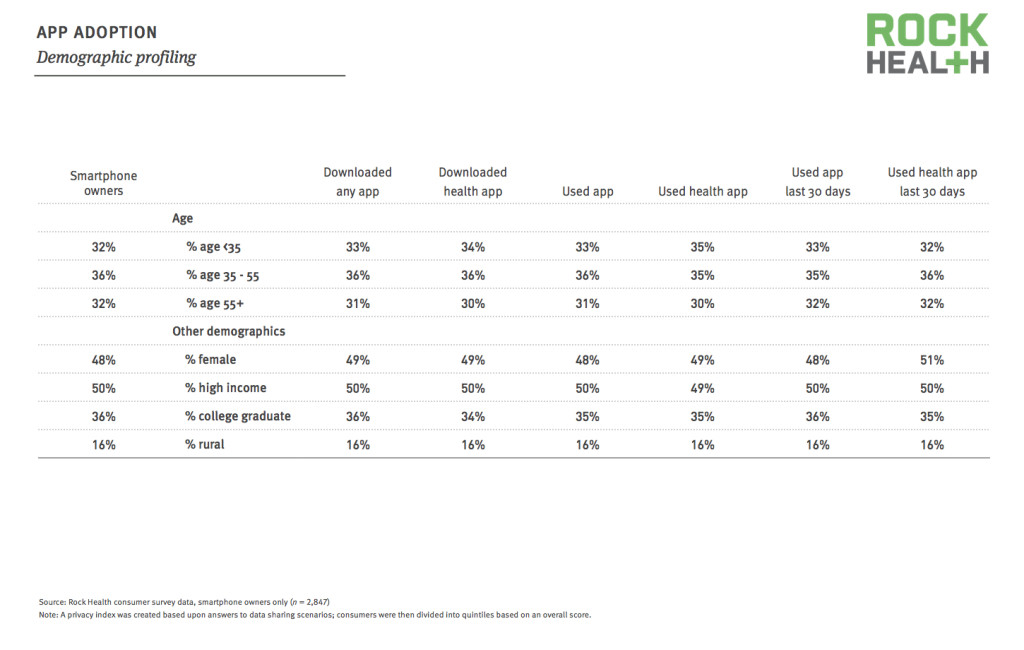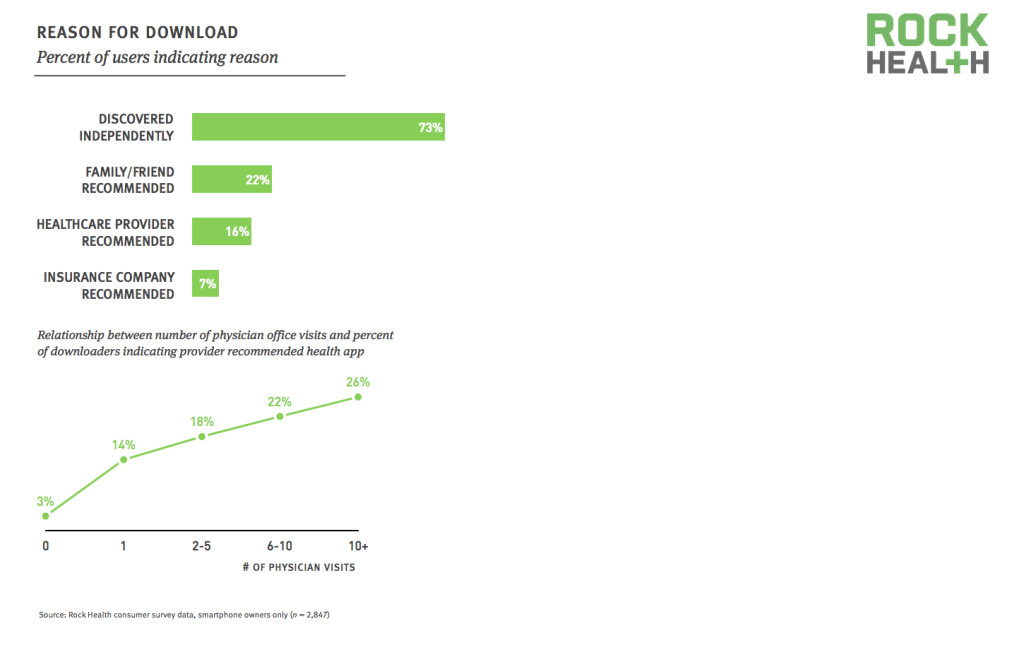Who is using health apps?
The Rock Health Digital Health Consumer Survey surveyed over 4,000 Internet-connected U.S. adults to test the adoption rates, attitudes, and preferences towards six digital health technologies. As a follow-up to the report, we are releasing a series of articles that cover additional topics from the survey—the first covers health apps—who downloads and uses them, and how they were discovered.

Source: Rock Health consumer survey data (n = 4,017)
Overall, 71% of the survey respondents (n = 4,017) were smartphone owners (n = 2,847). For figures presented on app downloading and usage, along with reasons for downloading, smartphone owners were considered the denominator.

Source: Rock Health consumer survey data
No significant demographic differences were found in health app downloaders. Looking across age, gender, income, education, and geography, those who downloaded apps (general and health) and used them generally mirrored the overall survey population.
Significant differences were found in health app downloaders based on their smartphone operating system. Apple/iOS users were significantly more likely to be health app downloaders (54% had ever downloaded a health app) versus Android users (36%). Recent usage rates were comparable, but Apple users had higher active rates (55% of downloaders had used a health app in the prior 30 days) versus Android users (47%).
Health status was also a predictor of health app downloads. Similar to adoption rates across the core six digital health categories studied in the primary Digital Health Consumer Survey report, those in bad health (“bad health” refers to those who had self reported any of the following: bad or poor health status; multiple chronic illnesses; 10+ physician office visits in the prior year; or a hospitalization in the prior year) were significantly more likely to have downloaded a health app (46% had downloaded versus only 40% of those in good health). Recent usage rates did not differ by health status.

Source: Rock Health consumer survey data
The significant majority of those who have downloaded a health app (73%) discovered their health apps independently, through app stores or online. Recommendations followed, with 22% citing a family member or friend, 16% a healthcare provider, and 7% receiving a recommendation to download a health app via their insurance company.
In addition, there was significant relationship between the number of physician office visits a downloader had and whether they received a recommendation to download a health app from their physician.

